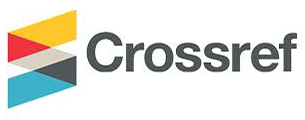Islamic Entrepreneurship Character Education in the Digital Era: Strategy for Creating Sharia-Based Entrepreneurs
Abstract
Full Text:
PDFReferences
Abdullah, R. (2018). The role of social media in promoting halal business and Islamic entrepreneurship. Journal of Islamic Business Studies, 14(2), 89-102.
Al-Ghazali, A. (2005). Ihya' Ulum al-Din (The Revival of the Religious Sciences). Dar al-Kutub al-Ilmiyah.
Al-Qaradawi, Y. (2010). The lawful and the prohibited in Islam. Al-Falah Foundation.
Amin, S. (2019). Ethical business practices in Islam: A theoretical review. Journal of Islamic Business, 13(2), 45-59.
Aziz, N. (2019). Digital platforms for Islamic business education: Challenges and opportunities. Journal of Digital Learning in Business, 8(4), 23-35.
Azizah, N., & Hidayah, N. (2022). Pendidikan kewirausahaan berbasis syariah di era digital. Jurnal Pendidikan Ekonomi Islam, 6(2), 123-137.
Booth, A., Papaioannou, D., & Sutton, A. (2012). Systematic approaches to a successful literature review. Sage Publications.
Hadi, M. (2019). Trends in Islamic entrepreneurship: A study on the Indonesian market. Journal of Islamic Business and Economics, 8(2), 123-137.
Hassan, F. (2019). The role of EdTech in shaping future Islamic entrepreneurs. International Journal of Islamic Economics and Finance, 10(2), 134-145.
Hassan, R. (2020). Resilience in Islamic entrepreneurship: Lessons for the modern day entrepreneur. Journal of Entrepreneurship and Business, 18(1), 110-123.
Lickona, T. (1991). Educating for character: How our schools can teach respect and responsibility. Bantam.
Mundakir, A., & Fadillah, R. (2020). Kewirausahaan syariah dan perkembangannya di Indonesia. Jurnal Ekonomi Islam, 15(1), 58-70.
Mohammad, R. (2016). Islamic business ethics and entrepreneurial behavior. Islamic Economics Journal, 11(3), 134-148.
Muzakki, A. (2020). The growth of halal tourism in Indonesia: An entrepreneurial perspective. International Journal of Islamic Tourism, 5(1), 45-58.
Piaget, J. (1970). Psychology and pedagogy. Viking Press.
Pritchard, A., & Wilson, M. (2007). Using literature reviews to inform research. Journal of Research in Nursing, 12(3), 188-197.
Ramadhan, S., & Mustika, M. (2021). Hijup: A successful case study of halal e-commerce in Indonesia. Journal of Fashion and Culture, 3(4), 214-226.
Samsudin, D. (2021). Implementasi pendidikan karakter Islami dalam kewirausahaan. Al-Mazaya, 3(1), 45-59.
Sulaiman, H. (2021). Webinars as a tool for promoting Islamic business principles. Journal of Online Education and Business, 19(1), 56-67.
Suri, M. (2020). Digitalization and Islamic entrepreneurship: Challenges and opportunities. Islamic Business Review, 10(3), 217-229.
Sukmana, R., & Hidayah, N. (2022). Fintech syariah: A new era in Islamic digital economy. Journal of Islamic Finance, 12(3), 78-89.
Webster, J., & Watson, R. T. (2002). Analyzing the past to prepare for the future: Writing a literature review. MIS Quarterly, 26(2), xiii-xxiii.
Zahra, S. A. (2018). Islamic entrepreneurship in the digital era: Opportunities and challenges. Journal of Islamic Business and Management, 15(1), 50-63.
Refbacks
- There are currently no refbacks.






